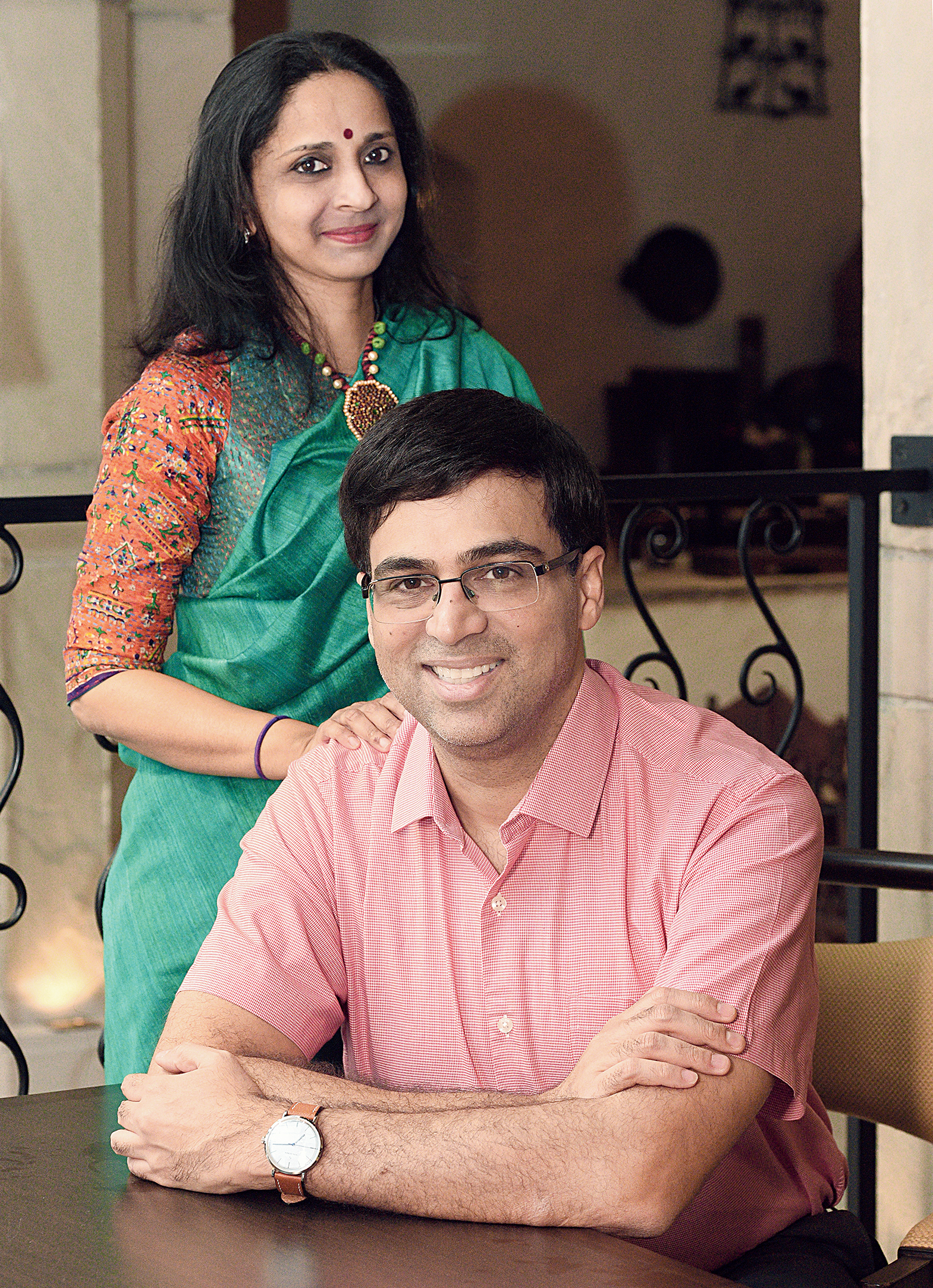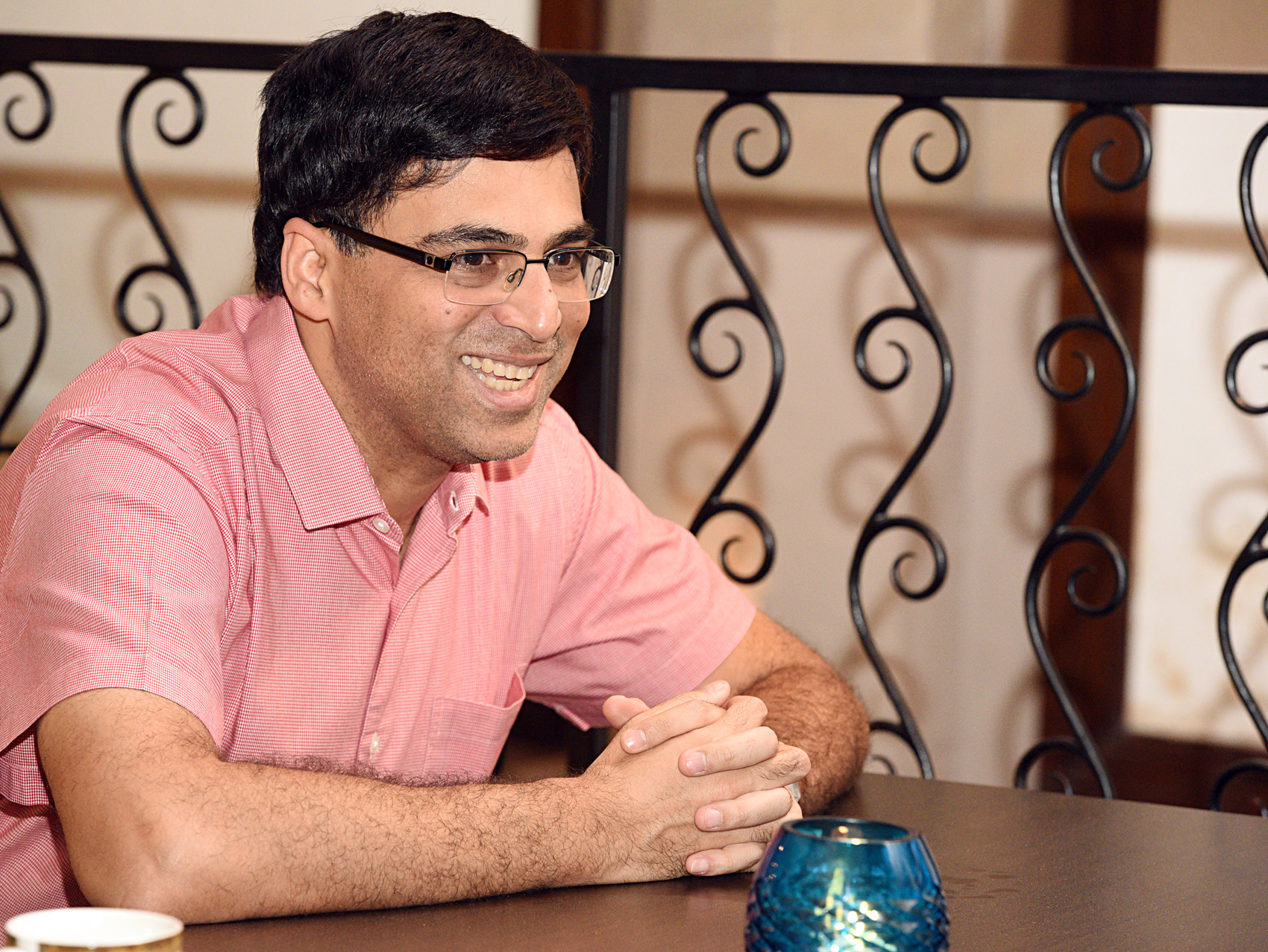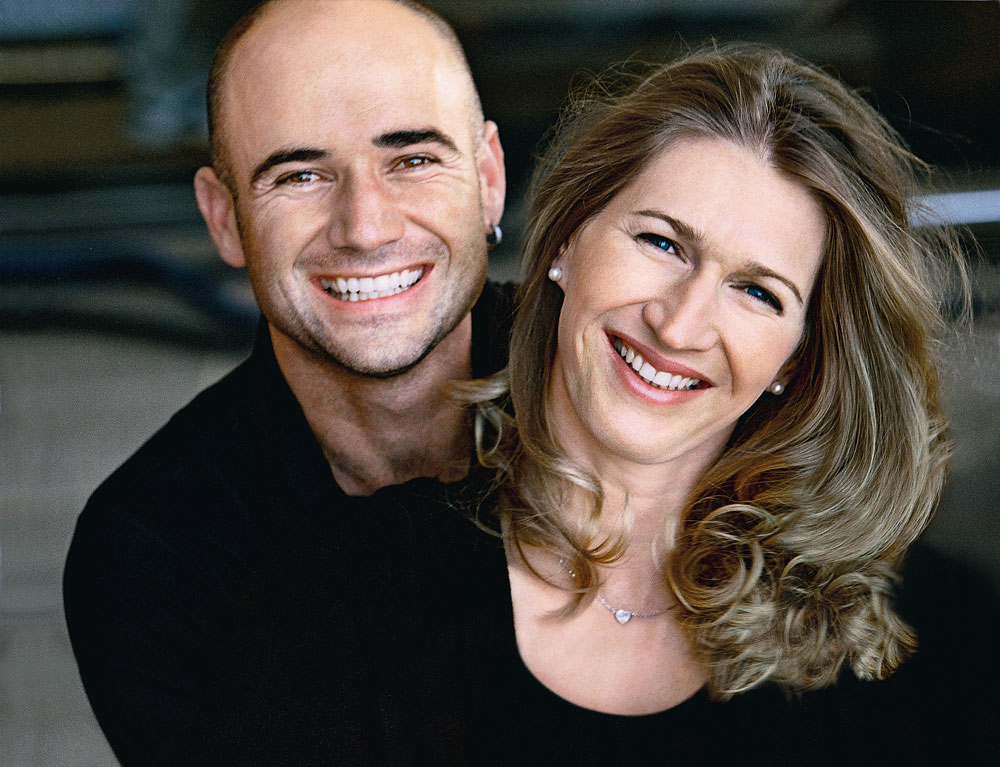Did you feel different the fifth time you won the world championship compared to the first time you won it?
Yes. The first time was not at the first attempt. So, there was this big feeling of satisfaction that this time you got it right. It’s more that this thing is absent in your life and you hate that you are so close on so many occasions, and it is frustrating when it slips away from your hands. It’s often something that you have done perfectly a 100 other times, but at that moment, you couldn’t do it.
When I won it for the first time, it was a big weight off my shoulder. But strangely enough, it was the first time I experienced how empty you can feel after you have won something.
Empty?!
Because within a year, I had lost my title. But I learnt a lot from that period. The second win came after six years. I lost my title at the end of 2001 and at the end of 2007, I became the world champion again. That was nice because I had had to persevere for it. I had to spend five or six years working on lots of things to get it back. This was a unified title again, so that was nice. I had started winning the title again in matches… not that I value these championships differently, but it’s for the record that you have covered every kind of format.
And, there were some very dramatic matches. My match with (Vladimir) Kramnik, my longtime rival… I played one of my best matches ever. Then the match with (Veselin) Topalov… all the adventures, getting there… a volcano exploded… we couldn’t get there. I think in the Topalov match, both of us experienced match hostility from the other side. So, that was one kind of experience. The (Boris) Gelfand match was another kind of challenge because I found it impossible to find a way past him. But sometimes doing the job is just hanging in there; even when it is not pretty, you still have to get the job done.
I wouldn’t really compare. Each experience is beautiful and each experience would satisfy me in a different way.
June 2012. Viswanathan Anand had just won his fifth World Championship title in a marathon in Moscow against Boris Gelfand, and we landed up at his second, Surya Sekhar Ganguly’s Salt Lake home to get a peek into the mind of the chess superhero. “He is a very controlled person. It is all about controlling your mind, that is what Anand can do at the highest level, and that is why he is Anand. I feel Anand is the greatest sportsman of India,” Surya told us.
November 2018. We are waiting for Viswanathan Anand at the Taj Bengal lobby, when he is in Kolkata for Tata Steel Chess India 2018, partnered by The Telegraph. The designated time: 6.30pm. At 6.28pm, there’s a scurry. Anand has arrived. Gentle, unassuming, a guy next door, belying the fact that he’s a world champion who made chess an aspirational sport in India and made many a kid believe that the mind is one’s greatest weapon.
Over the next 40 minutes, we discovered what makes the Chennai resident a world-class sportsman.
What sports do you follow besides chess?
I follow a fair amount of football. I watch a lot of sports… tennis, basketball, golf, cricket… I sort of wander around.
And the biggest icons for you are?
The team I follow is Real Madrid. For a long time, it was (Zinedine) Zidane.
Among the sports you follow, which has contributed to your game the most?
In almost every sport you see the same drama play out over and over again. How to achieve something? How to get there? How to stay there? How to recover when you fall off? I have followed many sportspersons over the years. One of my favourites growing up was (John) McEnroe, but of course I cannot think of someone like him whom I have grown up to play chess like! (Laughs) So, I enjoy watching him, but I don’t try to copy him in any way.
Tell us how you got there.
My philosophy has always been you should like what you are doing and you should keep at it. There’s always going to be a lot of hard work and sacrifice but if you like what you are doing, it doesn’t feel like it… let’s put it that way.
And is staying there more difficult than getting there?
Yes. The thing you lack immediately after that is the motivation. Somehow when you don’t have something you want it like nothing else, but retaining it and trying to get it a second time... you have to find a different perspective. You have to find something else which excites you. Sort of rewire yourself and go for it.
What has kept you going?
I think in sports you will experience a lot of emotions and quite intense ones. When you are playing for the highest stakes, of course everything is amplified. The tension… there are times during the world championship when you wish you could be doing anything else but this because it is very intense. At the same time, because it is intense and you understand the stakes, you cannot tear yourself away.
In the end, I think I fell victim to the same thing. By the time I came to defend the title the fifth time, some spark was missing and it did not work out. But I am proud that I could do it that many times… five times. Probably what keeps me going is my love of chess. I mean you cannot motivate yourself to do something that you don’t like. I still enjoy chess but it cannot only be goals. It also has to be the process. I like playing chess, studying chess, hanging out with chess players…so, it’s all these things combined. For me, it felt very natural to be a chess player, which is why I don’t feel that I need to do something else.
Have the three decades been different for you?
Yes, I mean I grew up in a different kind of world and a very different kind of chess world. I grew up and I was well into my teens when the computer first appeared in chess. That’s one dramatic change. Over time, the computer has made chess much more global. Now everybody anywhere can access it. It’s expanded the number of people who follow it.
During my career, I have seen how India’s relationship with chess changed. It’s very different now from before, but the essence of the game doesn’t change. The idea of putting one past your opponent doesn’t change. And that’s what keeps you going.
Your process must have changed over the years.
It has evolved constantly. I mean in response to what works, what doesn’t. How I do things now is totally different from how I used to do things before. That’s part of the job that you have to keep re-evaluating, making the changes that you need to.
Do you think chess was an unusual career choice back in the time?
I went through the motions. I finished my school, did my BCom, but I was very lucky. Normally these doubts come when you are going through lean patches. Then that critical exam comes. Imagine that around the time of my Plus II exam, just when you are thinking what career I am heading for or which college I should go to, I have a lean patch in chess. Then the contrast would have been stronger. But I was very fortunate in my career that just before my 10th standard exams or before I chose my subjects, I became the national champion. I finished my Plus II exams and I became world junior champion and grandmaster. When I finished my BCom, I was number five in the world.
So, the moments when you have the maximum doubts, for me, went very smoothly. I am lucky that I didn’t have to reflect too much. I cannot ever recall a moment when I was very young when I thought to myself that I should study or maybe consider another career. I was in chess and the most natural felt thing was I should continue to be in chess. There was nothing challenging there and it was very smooth that way.
Earning a livelihood from chess was essentially addressed by my career. Becoming a national champion improves your odds of earning a career. Then becoming a grandmaster and a world champion opens all sorts of doors. You get to play the best tournaments, which again takes care of the financial aspects, which is the stumbling block. That was the question that would have ripped me up earlier, but it didn’t.
What is your routine before a tourney?
When I was very young and I was travelling alone, I would prepare when I wanted to prepare. It was much more casual. I was my own boss. That gives you a lot of freedom but also, I was very young, confident, very spontaneous and I had not had, shall we say, the burden of experience. I had not gone through all the great victories or the big defeats and built up some history. Over time that starts to build up and you start thinking whether I should do the things that worked last time and not do the other things... some of it is superstition. But over time, I was getting more and more disciplined and of course that has continued.
Even after we got married (looks at Aruna), initially it was a little difficult because she didn’t know anything about chess. But she adjusted quite well. In fact, that was one time I could see a chess player through another person’s eyes. For me, being at a chess tournament was one of the most natural things on earth. I understand what happens. I understand the scores or what the numbers mean… one vs zero or half…. When we were newly married, I played in Dortmund and quite often after the game, she would be sitting at the theatre the whole time, maybe sometimes catching up on some sleep. Afterward she would ask me, what happened? And I would be stunned. I mean you couldn’t tell from all the noise?! Then I realised that for someone who is not used to the chess world, it can be an alien environment. And she didn’t play chess either. Within a few months, she seemed like a natural. Of course that evolved into her managing me and almost becoming a part of the team because we were travelling together. In fact, till the birth of our son (Akhil) we travelled together every year.
Now when you wake up in the morning, who do you see yourself staring at… a world champion, a father, a husband or just a chess lover?
It’s a very sleepy-looking man who is staring back at me and then you put some water and then you go! There are days when right after the world title, you look at yourself with some great satisfaction. The other stuff sounds too existential for me.
What have been your life lessons from chess?
The importance of challenging your preconceptions, prejudices… extrapolating from chess… I can see there are things in chess that you need to correct. The importance of finding something that you really like doing. You cannot be a sportsperson for any other reason other than the fact that you like the sport.
Who do you think will be the next world champion?
I would say so far, Magnus (Carlsen) has had more impact on Fabiano (Caruana), but it’s proving harder for him to land the blow. I would still say Magnus is a favourite, but it is a close match. At the moment, it could go either way. The score is even and the tension is quite high.
Anyone you see coming out of India?
I am almost certain that someone… Praggnanandhaa (Rameshbabu) and Nihal Sarin are showing outstanding qualities at such young ages. But even if you look at the older guys… (Pisharodi) Vidyut is doing very well. And the thing is we have so much depth. In the Isle of Man I met this boy whom I had met at the national school championships two years ago… Raunak Sadhwani. He gave me a hell of a time. You constantly discover how good they are.
Your top tips are...
Play it often, play for fun. I believe once you start playing, you’d want to do well. The competitive spirit will come in. But if you lose the enjoyment, that will never come back.
Anand’s ‘dramatic matches’
My match with (Vladimir) Kramnik, my long rival… I played one of my best matches ever. Then the match with (Veselin) Topalov… all the adventures, getting there… a volcano exploded… we couldn’t get there. I think in the Topalov match, both of us experienced match hostility from the other side. So, that was one kind of experience. The (Boris) Gelfand match was another kind of challenge because I found it impossible to find a way past him. But sometimes doing the job is just hanging in there; even when it is not pretty, you still have to get the job done.
I wouldn’t really compare. Each experience is beautiful and each experience would satisfy me in a different way.
Are there any sport icons for you from Calcutta?
Obviously all the chess players I know quite closely. Many of them have collaborated with me extensively. Besides that, I have met Sourav (Ganguly) a couple of times. In fact, it is hard to distinguish! Both of them are S. Ganguly (Sourav Ganguly and Surya Sekhar Ganguly). I think that’s why he (Surya) became my assist! (Laughs out loud) I follow cricket on and off.

Viswanathan Anand with wife Aruna at Taj Bengal Image: Rashbehari Das
And, life at 50 would be...
Actually doesn’t change much. Play often, play for fun. If you can keep that spirit in your 50s, then you are a lucky person and if you can keep that perspective, then wonderful.
Aruna’s had a huge influence on your life...
Anand: Yes, of course. I mean everything happens when you change from being single to being married... living with another person. She’s also been so closely involved in my career that I cannot even separate the two. We were really a team since, I would say, the time we got married in June (1996). There was a big super tournament in December and in just a few months she had picked up enough to be able to almost be like a guide. The other thing is we really spent a lot of time together. It was all over the place but we were together a lot.
Does Akhil play with you?
Anand: Occasionally. When he is with me, he is not sure whether he should play chess or be playful. So, that’s also a tension. In the beginning, I was getting very professorial with him... trying to tell him this and that. I had to learn to back off a bit and try and see through his eyes. But he is learning quite well and he is enthusiastic. I think he likes the problem-solving aspect in chess.
What kind of a dad are you?
Anand: I was travelling a lot. I wasn’t able to be there all the time. But I have made an effort to catch up. Aruna also encouraged me to make that effort. I make it a point when I am home to compensate as much as possible. I try to play a lot. He gets all his discipline from her.... And I am just his playing partner. His partner-in-mischief kind of a thing. We have a lot of fun together and nowadays I try to streamline it a bit more.
I’ll read history books with some science. I always say that these subjects are wonderful because you are not writing exams in them after all. You can really enjoy them. Now I am heavily into African geography because Akhil discovered… he wanted to know every country in Africa and their capital. He really knows a lot of obscure stuff. I was just getting back from London and Aruna said, ‘Bring some maps… he seems to have suddenly discovered maps’. Apparently, National Geographic had a maps supplement of Australia and my son was studying Australia through the road maps. So, I brought him some Berlin, Lisbon… whatever I could find at the airport. And he is sitting and studying maps.












